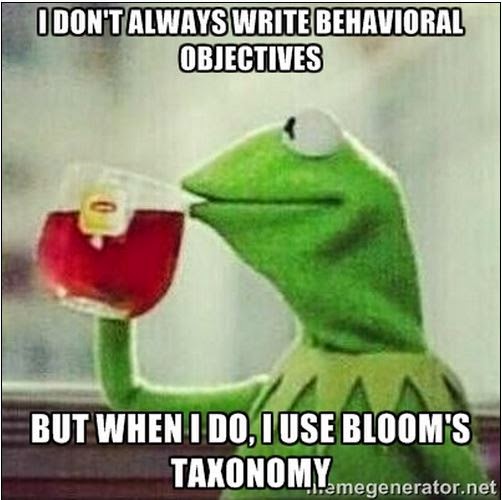As
a nurse, midwife, childbirth educator or doula, you may be asked to write
behavioral objectives for a new program or when you become a speaker at a
workshop, seminar or conference. I have
put together some helpful tips for writing these objectives.
Behavioral objectives, learning objectives, instructional
objectives, and performance objectives are terms that refer to descriptions of
observable student behavior or performance that are used to make judgments
about learning. Whether you are a childbirth educator, doula, nurse, lactation
educator or trainer, at some point you will be asked to write behavioral
objectives.
While some feel that writing behavioral objectives is a waste of
time, it is generally felt that using behavioral objectives allows the educator
to actually see what will be covered during a specific time period and not to
overwhelm the student. Using objectives help to clarify what details to include
under what generalized topic area, plus allows for examination of the order in
which topics and details will fall. Further, using behavioral objectives
promotes creativity with
the educator when developing teaching strategies for
use with all learner types.The three parts of a behavioral objective are:
1.Conditions (a statement that describes the conditions under which the behavior is to be performed).
Behavioral objectives are about curriculum, not instruction. Therefore, the list of objectives may be preceded by the phrase, "At the end of this session, participants will be able to…"
2. Behavioral Verb (an action word that connotes
an observable student behavior).
Behavioral verbs for use with curricula or CE (or continuing education unit) forms are typically upper level verbs and include classify, construct, define, demonstrate, describe, diagram, distinguish, estimate, evaluate, explain, identify, interpret, label, list, locate, measure, name, order, predict, reproduce, solve, translate.
Behavioral verbs for use with curricula or CE (or continuing education unit) forms are typically upper level verbs and include classify, construct, define, demonstrate, describe, diagram, distinguish, estimate, evaluate, explain, identify, interpret, label, list, locate, measure, name, order, predict, reproduce, solve, translate.
See this link for Blooms Taxonomy and measurable behavioral verbs.
Click here.
3. Criteria (a statement that specifies how well
the student must perform the behavior).
Behavioral objectives are measurable (note the four below), which means that the objective can be turned into a test question or evaluation item at a later date.
Behavioral objectives are measurable (note the four below), which means that the objective can be turned into a test question or evaluation item at a later date.
So, for someone who is writing a curriculum to include the topic
of comfort measures for use during labor, a measurable behavioral objective
might be:
At the
end of this session, participants will be able to:
List four
comfort measures that can be used during labor.
When developing a curriculum and writing objectives, it may be
useful to use a format where the objectives, outline of the content, time frame
and teaching strategies can be viewed simultaneously.
Most professional documents require references written in
the APA Style. APA (American Psychological Association) is most commonly
used to cite sources within the social sciences. This resource, Purdue University, revised according to the 6th
edition of the APA manual, offers examples for the general format of
APA research papers, in-text citations, endnotes/footnotes, and the reference
page.

No comments:
Post a Comment